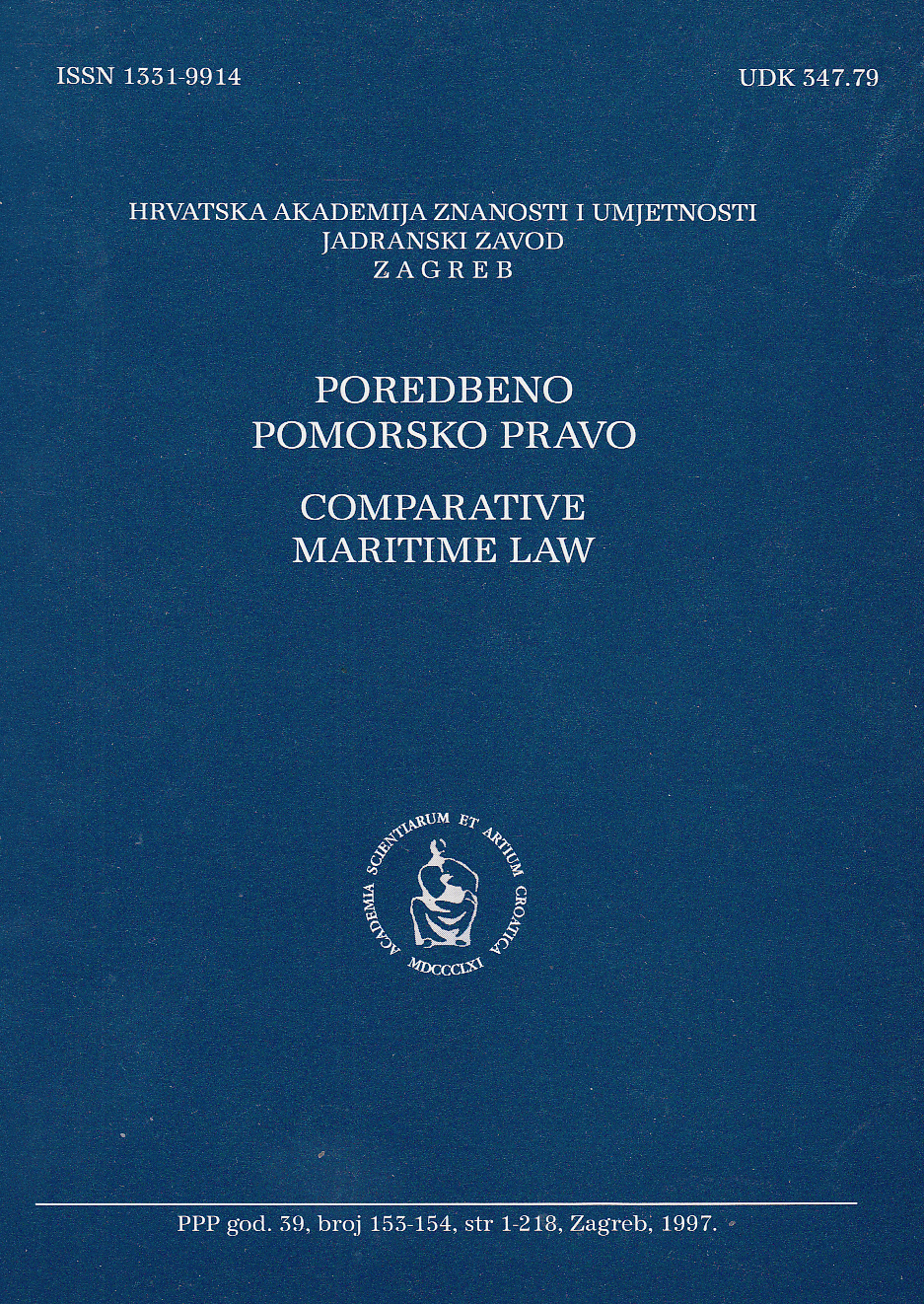Kako uračunati ''posebnu naknadu'' u Međunarodnoj konvenciji o spašavanju, 1989
How to Account the ''special compensation'' in the International Convention on Salvage, 1989
Author(s): Ivo GrabovacSubject(s): Maritime Law, Commercial Law
Published by: Hrvatska akademija znanosti i umjetnosti
Keywords: salvage at sea; special compensation for salvage; International Convention on Salvage (1989);
Summary/Abstract: The International Convention on Salvage, 1989, devotes a significant part to the protection of the marine environment. Especially important is article 14 which introduces ''special compensation'' as a corrective means of the traditional ''no cure - no pay'' principle. This means that if the salvor has carried out salvage operations in respect of a vessel which by itself or by its cargo threatened with damage to the environment and has failed to earn a reward under a well-known criteria set out in article 13, at least a reward equivalent to special compensation assessable in accordance with article 14, he shall be entitled to special compensation from the owner of that vessel equivalent to his expenses. Article 14, paragraph 3, defines the salvor's expenses. If the salvor has prevented or minimized damage to the environment by his salvage operations, special compensation payable by the owner of the salvor may be increased up to a maximum of 30 per cent of the expenses incurred by the salvor. However, the tribunal, if it deems it fair and just to do so and bearing in mind the relevant criteria set out in article 13, paragraph 1, may further increase such special compensation, but in no event shall total increase exceed 100 per cent of the expenses incurred by the salvor. Salvor's expenses for the purpose of special compensation means the out-of-pocket expenses reasonably incurred by the salvor in the salvage operations and a fair rate for equipment and personnel actually and reasonably used in the salvage operations, taking into consideration the criteria set out in article 13, paragraph 1(h), (i) and (j), i.e. the promptness of the services rendered, the availability and use of vessels or other equipment intended for salvage operations and the state of readiness and efficiency of the salvor's equipment and the value thereof. In the famous case ''Nagasaki Spirit'' in England the House of Lords finally clarified in February 1997 the issue of ''fair rate'' as one which should be based not only on out-of-pocket expenses but should include the element of maintenance, investment, depreciation and idle time. But the fair rate should not be a profitable one, namely it does not include any element of profit. The decision is also important in confirming that any claim under article 14 will apply for the whole period of the services even if the risk of damage to the environment has been stopped at an earlier stage of service.
Journal: Poredbeno pomorsko pravo
- Issue Year: 39/1999
- Issue No: 153-154
- Page Range: 1-12
- Page Count: 12
- Language: Croatian

